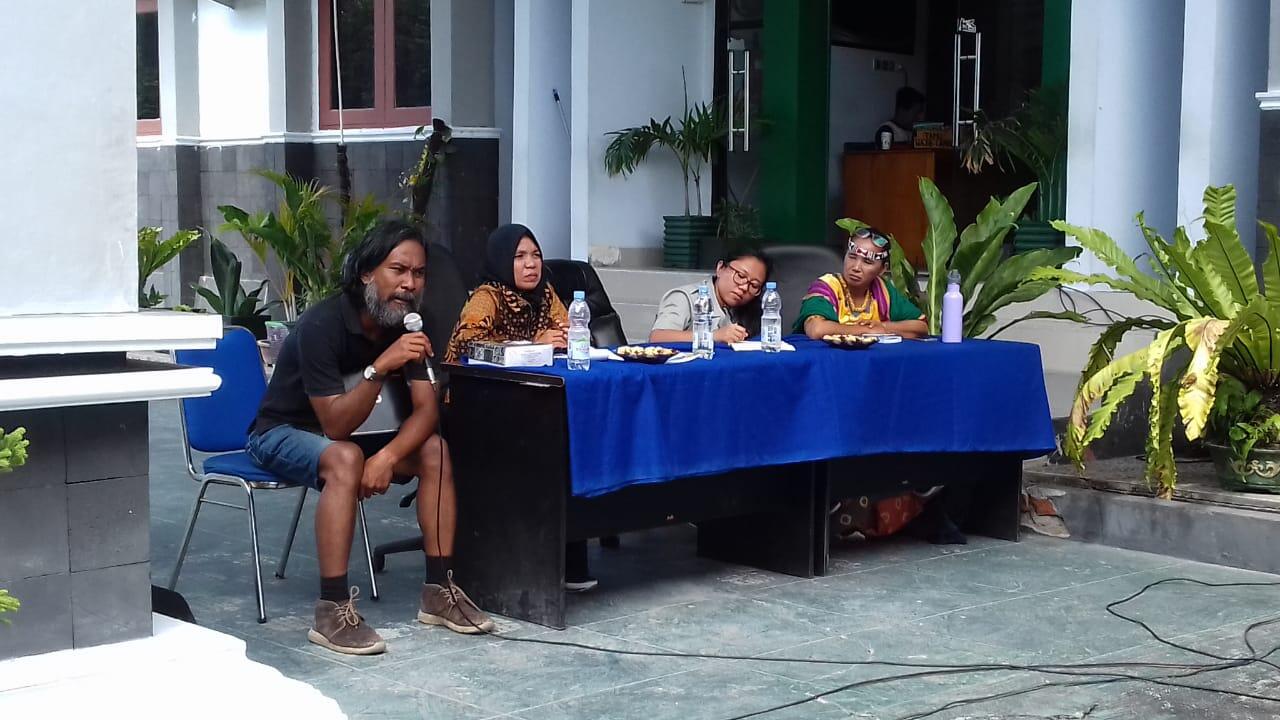PALU, Central Sulawesi, 8 December 2018: Preserving local wisdom, engagement of women and traditional communities are key for disaster mitigation, speakers said.
Member of Palu Koro Expedition, Isnaeni Muhidin, said that the province is located on top of active earth plates Palu and Koro with dozens of cracks. The ancestors with their traditional wisdom have sent warning messages to next generations by using such words as, among others,: Rogo (damaged), Biromaru (rotten wild grass, swamp), Naombo (collapse), Topomini (damaged earth surface), Beka (cracks in ground) to name villages/areas in Palu, Sigi and Donggala which have in the past been repeatedly struck by lindu (quake), bombatalu (tsunami) and nalodo (liquefaction).
“Satelite imaging detects active movement of earth surfaces. There are large red zone (high risk) areas in the province. These areas should be cleared from housing in the rehabilitation and reconstruction. In addition, efforts to raise public mitigation awareness should be intensified to empower locals to protect themselves in order to reduce loss of lives and assets. These are our inputs to decision makers,” Isnaeni said.
The 28 September 2018 quake, tsunami and liquefaction claimed at least 4,000 lives and displaced some 200,000 people.
Aminingrum, from National Disaster Mitigation Agency (BNPB), said that being located in the Ring of Fire, in the intersection of continental plates with 127 active volcanoes, has made Indonesia a disaster prone country. Strengthening local capacity for mitigation, including from local wisdom, will boost community resilience. “We should not ignore local wisdom. Our ancestors pass educative information to future generations through songs, stories, folklore and arts,” she said.
Rukmini Toheke, a representative from traditional women groups (AMAN Perempuan), explained that traditional communities also observe anomaly in animal behaviours and changes in the nature as warning signals of natural disasters. “Not many appreciate traditional wisdom but it helps small tribal communities to survive and women’s involvement is instrumental in helping communities to rebuild and survive.”


